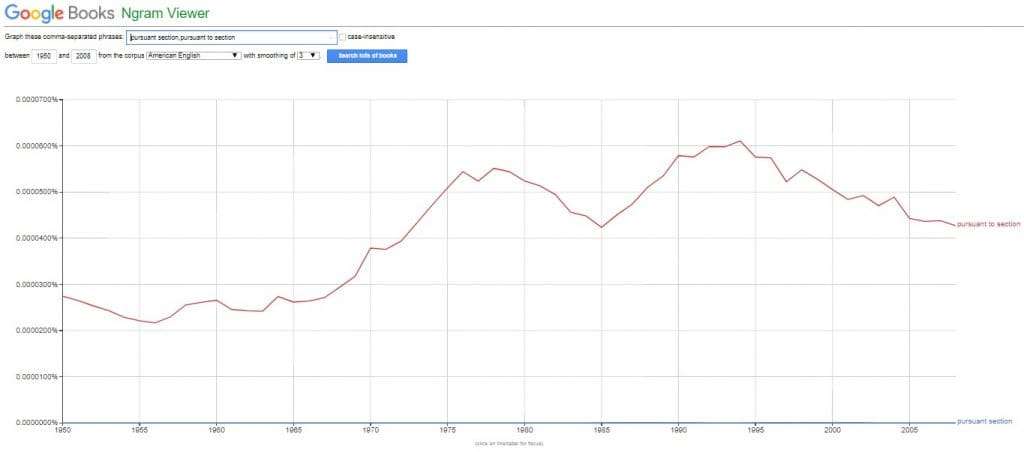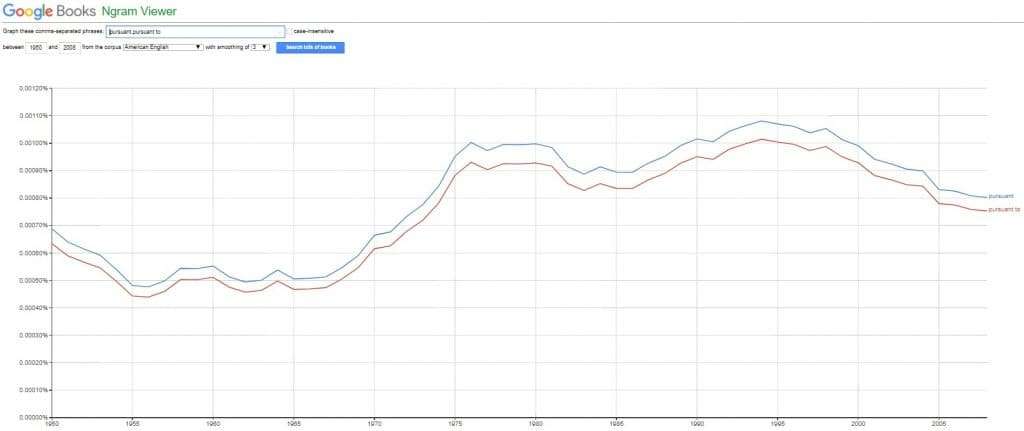The Volokh Conspiracy
Mostly law professors | Sometimes contrarian | Often libertarian | Always independent
Horace, Google, Westlaw, and 'pursuant' vs. 'pursuant to'
A former student emailed me to ask:
Is it proper to say "pursuant Section 30," rather than "pursuant to Section 30?"
Google's dictionary states that "pursuant" means "in accordance with," so it seems like adding a preposition, e.g. "to," is redundant.
And this reminded me of a lovely line from the ancient Roman poet Horace, who spoke about "the will of custom, in whose power is the decision and right and standard of language." As with law, the life of language "has not been logic; it has been experience," and while logic often influences custom, custom trumps. (That's why we generally say "aren't I?" even though logic suggests "amn't I?," and generally don't say "is not he?" even though it's logically identical to "isn't he?") We depart from custom at our peril; the reader might view such departures and errors (whether or not we would agree that they are), or at the very least may find them jarring and distracting. We don't want readers to focus on our strange wording; we want them to absorb our substantive argument with as little distraction as possible.
My sense is that "pursuant to Section 30" is vastly more common than "pursuant Section 30"; but fortunately, these days, one doesn't have to rely on one's necessarily selective perception and memory in such matters. Instead, one can turn to Google Ngrams to search recent American English works for "pursuant to section" (red line) and "pursuant section" (blue line):

Or one can more generally search for "pursuant to" and "pursuant," and see the small gap between the two lines (which represents works that use "pursuant" but not "pursuant to"):

And, if one is looking for legal custom, and thinks that the Google Ngrams corpus (published books) generally doesn't have enough to be a good guide, one can search on Westlaw (especially if one has free access to Westlaw). A quick search through all cases for "pursuant to section" and date(aft 11/1/2017) finds 559 references in just the last month and change. A search for "pursuant section" and date(aft 11/1/2017) finds two. I feel that we have a winner.
Of course, there are complexities even here. In some situations, you might want to search only within cases in your court system, because some such customs vary geographically or even by jurisdiction. And of course, sometimes you want to use a fresh phrase, so long as it doesn't sound awkward or ungrammatical, precisely because it's not customary. But I'm pretty sure that "pursuant section 30" isn't the place where you want to be creative.


Show Comments (0)